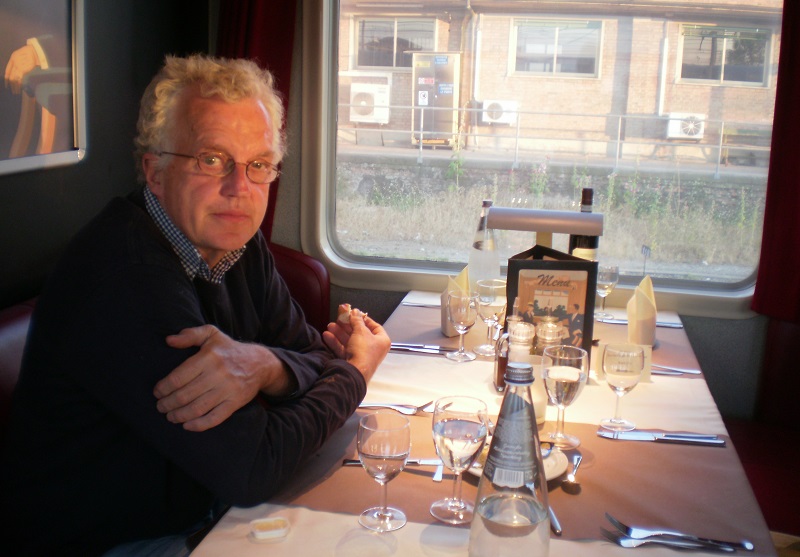The aviation world is governed by an omerta which its members break at their peril. Robin Rackham, who has died of cancer aged 67, was one of few pilots brave enough to speak out about a basic maintenance error that very nearly cost the lives of 221 people.
In 1993, Rackham was flying a Boeing 757 for the Dutch charter company Transavia to Kos in Greece when he noticed high vibration readings in one of the two engines. There had been concern about vibration on previous flights and a Boeing engineer was on the flight deck with Rackham and his first officer. Neither of the other two was particularly concerned, but Rackham coolly took his shoes off in the toilet to check the vibrations with his stockinged feet.
As the vibration worsened, Rackham declared an emergency, to the annoyance of his first officer, who later complained about Rackham’s action. The plane diverted to Athens with one engine on idle, but as he came into land, Rackham increased the power of that engine, which proved to be a lifesaving action. All but four of the 36 bolts holding two vital sets of blades together had come undone because a fitter at Rolls-Royce had gone off to lunch in the middle of the job, leaving them hand-tightened, and forgotten to complete the work.
The only thing holding the engine together was its own thrust. Had the blades come off, the engine would have blown up, causing a disaster. Rackham only got wind of the explanation later. He rang me at the Independent, where I was transport correspondent, and a series of stories ensued. Over the years, Rackham gave me various aviation scoops. He was particularly concerned about two-engine planes being allowed to fly across the Atlantic, because of his worries about incidents when one engine goes out of commission possibly four hours’ flying time from a diversionary airport.
Born in South Shields, the son of a Tyne river pilot, Rackham was educated at Elizabeth College, St Peter Port, Guernsey, till 1953; as a result of his mother’s remarriage, he emigrated to Chicago, and in 1959 began training to join the US Air Force. Forced to eject when his jet failed to recover from a spin, he suffered a perforated eardrum and so became unfit for military service.
In 1963 he gained a degree in business administration from Northern Illinois University, Dekalb, and became a computer salesman for IBM. The year after he returned to the UK in 1967, he left the company to pursue his passion for flying. A fiercely independent, self-made man, he achieved his aim of becoming a pilot through sheer determination, gradually working his way up to big jets. In 1970 he obtained his UK commercial pilot’s licence.
Rackham was one of those jobbing pilots we normally never hear about who get hired in times of plenty, but often find themselves out of work when demand for holidays plummets. He compiled his stories of working for long-disappeared airlines such as Channel Airways, Court Line, Air Holland and a host of others into his book Defining Moment (2002), in which there are enough hair-raising moments to demonstrate why, as Rackham puts it, the 1970s were a time “when sex was safe and flying dangerous”. He tells of one pilot with whom he was on a course who had recently murdered his wife, and a flight with a captain who was “totally pissed out of his mind” and whose landing was “a controlled crash”. It is a book that deserves a far wider audience, especially at airport bookshops.
His other love was restoring old buildings. As well as being founder of the Teesdale Buildings Preservation Trust, he set about restoring the 45-room Lartington Hall, near Barnard Castle, County Durham, built in 1635, which was uninhabitable when he bought it but which today continues to be lived in by his family. Rackham was proud that he had gone from council house to stately home.
The cancer that manifested itself in 1995 led to his retirement. He died of complications from prostate cancer despite surgery. A Canadian research report has linked exposure to hydraulic fluids found in aircraft to high rates of highly invasive prostate cancer in aircrew. His first marriage ended in divorce in 1968, and he married his second wife in 1975: she survives him, as do a son from that marriage, a son from his first marriage, his mother and two stepchildren.
Robin Rackham, airline pilot and whistleblower, born May 28 1938; died March 24 2006
